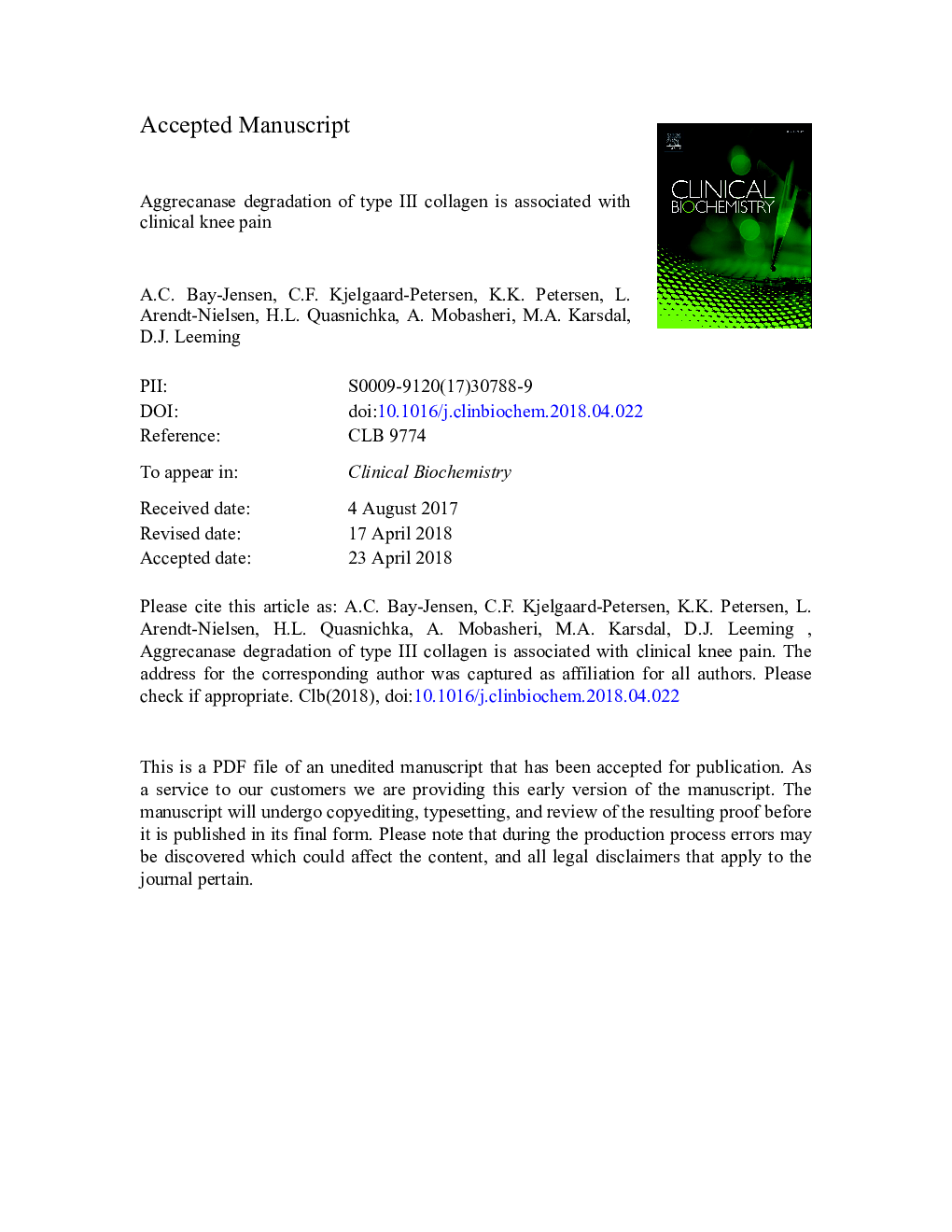| Article ID | Journal | Published Year | Pages | File Type |
|---|---|---|---|---|
| 8316859 | Clinical Biochemistry | 2018 | 28 Pages |
Abstract
There is a lack of biochemical markers for non-invasive and objective assessment of symptomatic osteoarthritis (OA). Aggrecanase activity has been shown to be associated with joint deterioration and symptomatic disease through the degradation of extracellular matrix proteins, such as type III collagen. Our study aimed to identify and develop a novel biomarker by measuring an aggrecanase-mediated type III collagen neoepitope, and correlate levels of this biomarker with OA joint pain. Mass spectrometric analysis of purified type III collagen, degraded by the aggrecanase A Disintigrin and Metalloproteinase with Thrombospondin motif (ADAMTS), revealed a fragment generated by ADAMTS-1, -4 and -8. A monoclonal antibody was raised against the neoepitope of this fragment (COL3-ADAMTS) and a competitive ELISA was developed and tested; using serum samples from a cross-sectional cohort of patients with different degrees of knee OA (nâ¯=â¯261). The COL3/ADAMTS ELISA was technically robust and specific for the ADAMTS-1, -4 and -8 generated neoepitope. COL3/ADAMTS was released form cytokine stimulated synovial cultures, indicating a biologic link between the marker and synovium. In OA patients, serum COL3/ADAMTS was independently associated with pain scores (rhoâ¯=â¯â0.13-0.17, pâ¯<â¯0.05). This association was associated significantly with the presence of radiographic OA. Together, these data indicate that COL3/ADAMTS could be a marker of early osteoarthritis and the underlining pathology.
Keywords
Related Topics
Life Sciences
Biochemistry, Genetics and Molecular Biology
Biochemistry
Authors
A.C. Bay-Jensen, C.F. Kjelgaard-Petersen, K.K. Petersen, L. Arendt-Nielsen, H.L. Quasnichka, A. Mobasheri, M.A. Karsdal, D.J. Leeming,
